The Kids were not alright: the sordid legacy of a voyeuristic ‘cult classic’
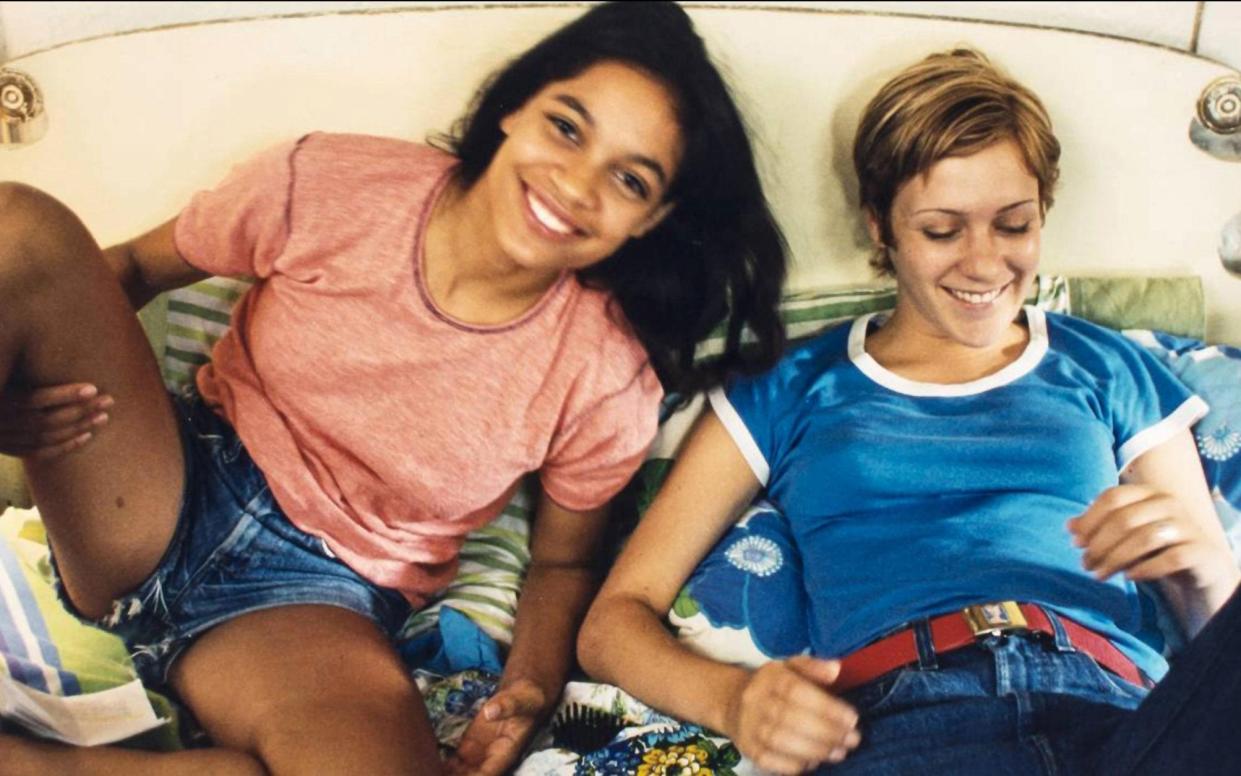
- Oops!Something went wrong.Please try again later.
- Oops!Something went wrong.Please try again later.
- Oops!Something went wrong.Please try again later.
- Oops!Something went wrong.Please try again later.
- Oops!Something went wrong.Please try again later.
On July 10, 2000 security staff at Bellagio Hotel and Casino on the Las Vegas strip were shocked to discover the body of 25-year-old London-born actor Justin Pierce in a suite. He had died by hanging and left behind a suicide note, the contents of which have never been revealed.
Pierce had struggled for years to escape the notoriety acquired starring as a miscreant teen in Larry Clark’s 1995 art-house hit, Kids. Six years later, in February 2006, his Kids co-star Harold Hunter suffered a fatal cocaine overdose in his Lower East Side apartment in New York. As with Pierce, he’d found it difficult to find acting work following Kids. He was 31.
With its hyper-explicit – some would say pornographic – depiction of teenage sexuality, Kids would never get made today. It barely got made in 1995. And it wouldn’t have reached cinemas without the stellar efforts of patron-to-the-arts Harvey Weinstein, who, together with his brother Bob, bought back the distribution rights from Disney and self-released the movie.
Kids is shot in a faux-documentary style and follows a day in the life of a group of sex-and-drug obsessed teen miscreants in New York. The spectre of HIV is conjured with and the story concludes with one of the male characters raping a girl who has tested positive for the virus. If there’s a “moral” it is be careful who you sleep with /sexually assault – though Kids is clearly less interested in preaching to the audience than shocking them.
Weinstein’s reputation is today in tatters. It feels fair to say Kids has suffered a similar nosedive. And a new documentary by one of its stars looks set to seal that toxic reputation.
The Kids, made without the involvement of Larry Clark or Kids writer Harmony Korine, wrestles with the film’s legacy. There is a special emphasis on its largely negative impact on its amateur cast.
Kids, if it is widely remembered today, is known for launching the careers of Chloë Sevigny and Rosario Dawson, aged 19 and 15 respectively, when the movie was shot amidst the skater community of New York’s Washington Square Park. In The Kids, actor Hamilton Harris delves into his own experiences of Kids, and its unwholesome effect on his life.
“My feelings about the movie started to shift after I saw it in the theatre and saw the global reaction,” Harris told Variety ahead of the premiere of The Kids at Tribeca Film Festival this month. “It was extremely overwhelming and it brought the realisation that I needed to do some work on myself.”
Clark was 50 when he directed Kids and the film’s fascination with the sexuality of extremely young teenagers feels stomach-turning today. Clark’s justification was that he was representing the reality of teenage life. That the movie had the aspect of a documentary.
“When it premiered at Sundance… a lot of adults thought it was some crazy old man’s fantasy,” Clark told W magazine in 2016. “But all the kids said, “This is the way it is”. There had never been a film made like it. I didn’t think it was shocking. I just don’t think people were ready for the truth. But now it’s routine, it’s all over the news. The film holds up well over time because I was just documenting life.”
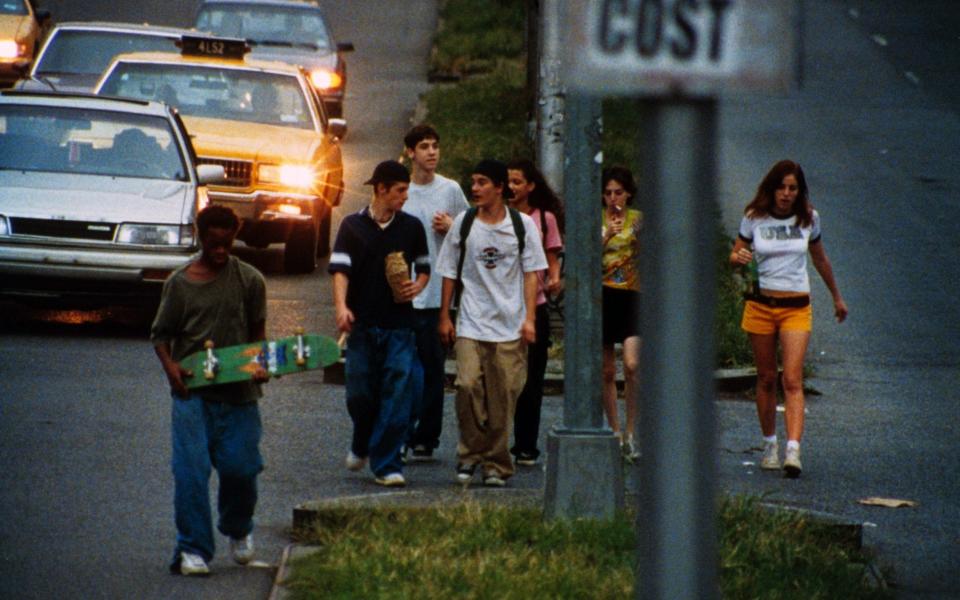
Clark was a Vietnam veteran turned avant-garde photographer. He was also a hot-head. In 1976 he served 19 months in prison after shooting a man at a poker game. His obsession with teen sexuality went back to the Eighties when he published a collection of photography, Teenage Lust. It featured teenage drug use, graphic images of teenage sexual activity and pictures of young male prostitutes in Times Square.
Kids grew out of his interest in the skater scene around Washington Square Park. Clark believed he could not document a community unless he was part of it, which was why, at age 48, he learned to skateboard. Many of the kids assumed he was a weirdo or worse. But he struck up a connection with 19-year-old Harmony Korine, a rich kid from Nashville trying to break into film-making who would carry around VHS tapes of his self-made movies.
He handed one such tape to Clark, who quickly tapped him to write a feature about wayward adolescents in New York.
“Harmony wrote the entire thing in a week,” Clark told W. “It was incredible. He had access to this world; he was one of them. I wanted the film to feel like you were eavesdropping on a secret world of kids that adults didn’t know about, or access to. All kids have this secret world where they can be themselves. After a time, they let me in.”
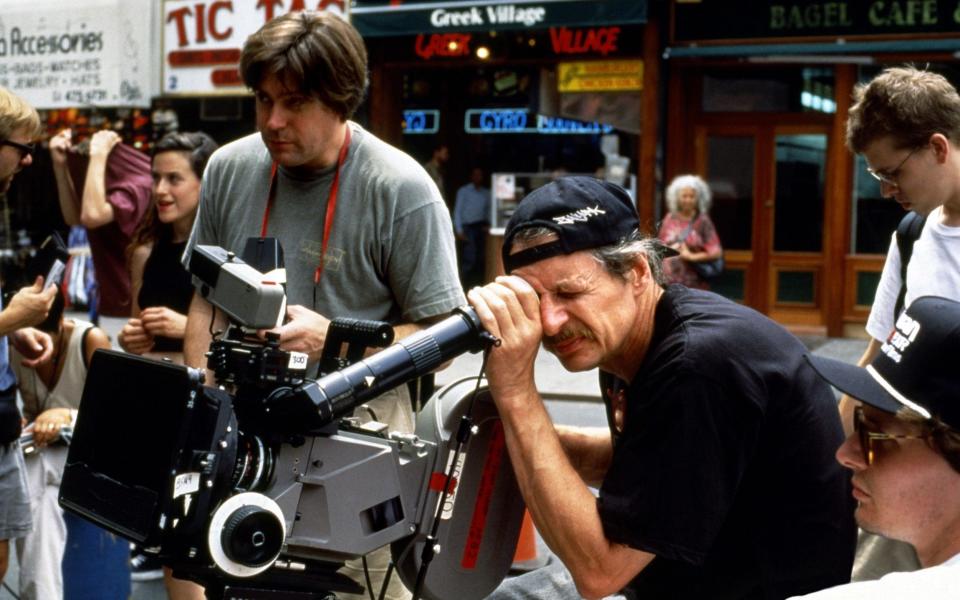
“They were quite a duo,” Lou Barlow, the indie rock musician who scored Kids told Rolling Stone in 2015. “It wasn’t a father-son thing – it was way creepier than that.”
Notoriety didn’t bother Clark. Korine for his part revelled in the backlash as Kids debuted at Cannes in May 1995. “I was surprised that the movie would cause such a ruckus and that many people were that upset,” he told Rolling Stone in 2015. “I really enjoyed that. I think watching all the grownups flip out was the most fun for me.”
There is no evidence Kids drove Pierce to suicide or led to Hunter’s fatal overdose. Nonetheless, Harris's new documentary argues Kids had a hugely destabilising effect in that it led the public to conflate its young stars with their debauched and depraved characters.
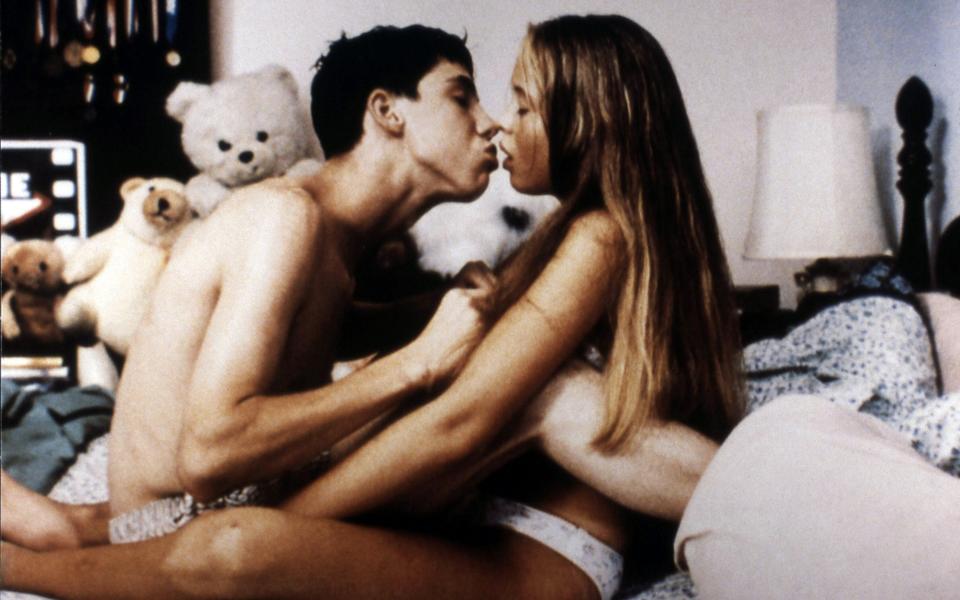
“There’s reasons why Harold did drugs and if that’s not understood then we can’t appreciate the fullness of who he was as a human being,” Harris told Variety. “And Justin. He was in the Friday movie. He was doing good. He was acting, but then he killed himself. What drives a person to do that? We need to understand.”
What’s clear is that Kids was not a normal set. Harris says drugs were readily available to the young cast and they were filmed naked and without any adult subversion aside from that of Clark. And Clark’s claim that he was merely chronicling “reality” is disputed by The Kids’s director Eddie Martin.
“Larry always says, 'I tell the truth and the truth can be shocking'. Well, my response to that is: whose truth? Is it the truth, and what are the costs of telling that truth to other people? It was marketed in a particular way that had an impact on those who were sold as particular characters. Twenty-six years have passed, so you can see the consequences of that.”
Some of the teenagers cast in Kids were from troubled backgrounds. Was Clark giving them a voice? Or was he guilty of exploitation? “It’s complex, especially when you’re approaching teenagers who really don’t have a lot of chances around them,” said Martin.
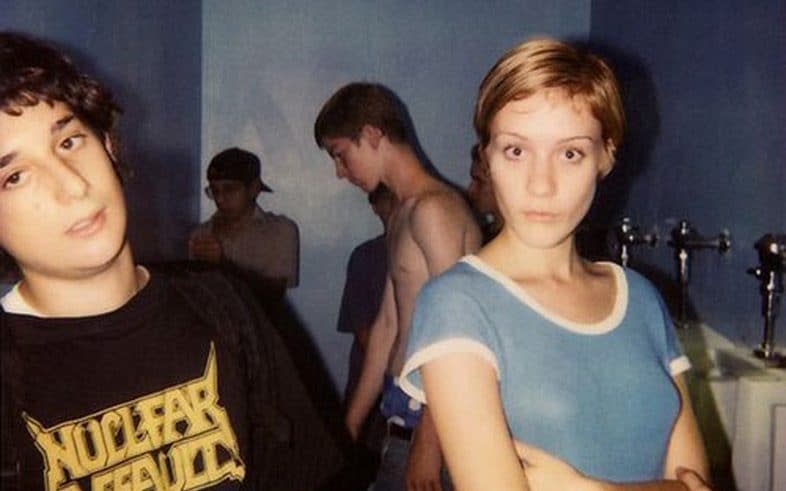
“Do they take that opportunity? Many of them were runaways or people from traumatic backgrounds or troubled homes. They were very trusting of the filmmakers in a way and gave a lot. And then they didn’t have anyone around to help them or give them guidance while there was a narrow window of opportunity that opened for them.”
One example is Leo Fitzpatrick, who played teenager sexual predator Telly – the story’s nasty central protagonist. Aged 15 at the time, his first scene was an explicit and exploitive sexual encounter. Later Fitzpatrick explained that his “naivety” had helped him with the sequence. Yet as the film became a success he was forced to flee to Europe to avoid the negativity.
“I wasn’t overthinking it,” he told the Guardian in 2015. “It was just something to do that summer. I never thought the movie would even come out.”
Kids made a lot of money. Filmed on a shoe-string of $1.5 million, it earned $20 million dollars in the US alone. Yet while the director and the Weinsteins walked away with a fortune, the actors were paid a pittance – another issue with which Hamilton reckons in The Kids.
“We were in the right place at the right time and we become part of this cult classic film and had to deal with everything that comes with that. You can take a person out of the ghetto, but you can’t take the ghetto out of a person, and to me ghetto refers to the mental and emotional trauma we went through.”
The Nineties weren’t the Seventies and the depiction of teenage promiscuity was hugely controversial (though this may have contributed to Kids’s box office). The New York Times approvingly heralded Kids a “wake-up call” to the modern world. Other opinions have arguably held up better.
“Kids, a disturbingly voyeuristic look at adolescent promiscuity, is virtually child pornography disguised as a cautionary documentary,” began a review in the Washington Post. “Set in a nihilistic never-never land, this smutty film follows the adventures of 16-year-old Telly, a pimply Peter Pan who specialises in deflowering “little baby girls”. Except for paedophiles, it's hard to imagine who'll be drawn to this irresponsible Little Bo Peep show.”
Another day, 1998. pic.twitter.com/C5lVnecofD
— Larry Clark (@larryclarkfilms) March 23, 2021
Sevigny and Dawson have gone on to stellar careers. Still, it would be a mistake to overstate Kids’ value as a launch pad. Rather than make the reputation of Clark it turned him into something of a pariah figure. He went on to direct the even more controversial Bully and Ken Park. The latter, which orbits Clark’s favourite theme of teen sexuality was banned in Australia (the police raided a protest screening). And it has never been shown in the UK after a November 2002 assault by Clark on Hamish McAlpine, head of distribution company Metro Tartan.
“I saw Mr Clark stand up, throw a punch at Mr McAlpine, kick the table over, jump at him on the ground, and start choking him,” Metro Tartan managing editor Laura De Casto later said. The row seemed to revolve around the 9/11 attacks and led to Clark spending four hours in a police cell.
“I’m sorry I lost control,” Clark explained in a statement. “But if I had awoken this morning after listening to him last night and hadn't hit him I don't think I could have looked at myself in the mirror.”
That incident was the last time Clark made the headlines to any significant degree. Critics will argue obscurity is exactly what he deserves. And that Hamilton Harris’s exposé of the toxic legacy of Kids is the just desserts Clark has had coming – karmic payback 26 years after his sordid little film about teen sexuality made his name.

